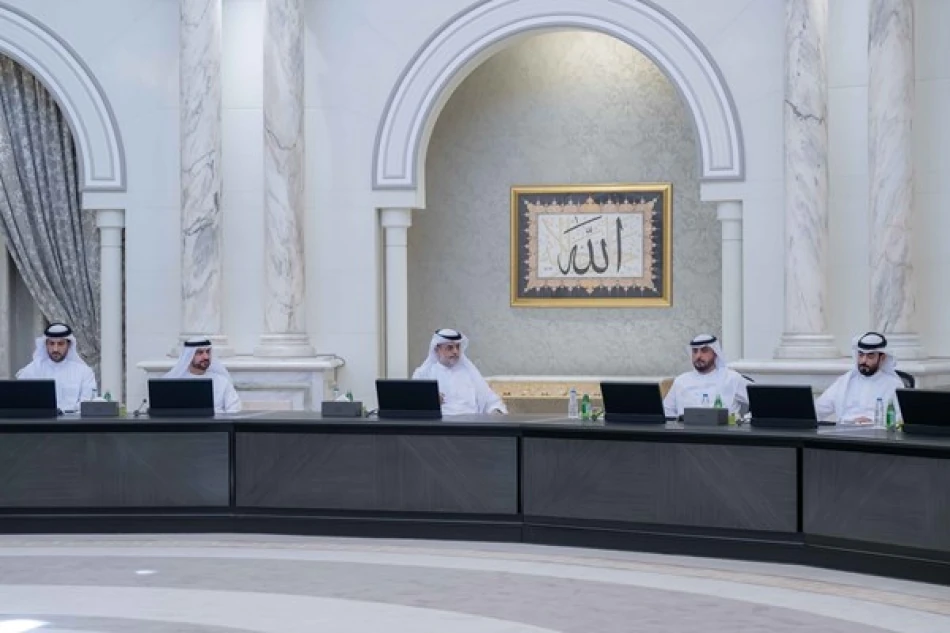
Sharjah Crown Prince Chairs Executive Council Meeting, Driving Emirate's Strategic Vision
Sharjah's Executive Council has appointed Aisha Rashid Al Hussan Al Shamsi as Secretary General of the Sharjah International Award for Cultural Heritage. The appointment comes as the emirate continues to strengthen its position as a cultural hub while pursuing ambitious economic growth strategies.
Sheikh Sultan bin Mohammed bin Sultan Al Qasimi, Crown Prince and Deputy Ruler of Sharjah, chaired the council's weekly meeting on Tuesday. The session covered key government initiatives and reviewed performance reports from various departments and entities working to improve services for citizens and residents.
Al Shamsi's new role carries significant responsibilities. She'll develop strategic and marketing plans for the heritage award, coordinate with judging committees, and manage the entire nomination process. The position also includes overseeing the award's financial and administrative operations, plus organizing the annual launch ceremony.
But the council's focus extended well beyond cultural initiatives. The Higher Committee for Economic Integration presented updates on efforts to boost the emirate's economy. The committee is working on initiatives designed to increase local GDP growth and enhance economic awareness across Sharjah.
The economic development strategy targets multiple advanced sectors through what officials describe as ambitious strategic plans. These efforts aim to provide better services for investors while strengthening key economic indicators that drive continuous growth.
The council also reviewed results from Sharjah's 2023-2025 visual identity campaign. The marketing push focused on three main areas: culture, entertainment, and economy. The numbers show the campaign worked - it generated millions of views and increased investment interest, positive public perception, and website visits.
Here's where it gets interesting for the region's economic landscape. Sharjah is building a new advertising strategy around sustainability, welfare, education, knowledge, culture, and arts. The plan targets larger audiences across a broader regional scope, which could position the emirate to compete more effectively with Dubai and Abu Dhabi for cultural tourism and investment.
For investors and businesses, this signals Sharjah's serious commitment to diversifying beyond its traditional strengths. The emirate has long been known for manufacturing and logistics, but these moves show a clear push toward becoming a knowledge and culture-based economy.
The timing matters too. As Gulf states work to reduce their dependence on oil revenues, cultural initiatives and heritage preservation are becoming valuable economic drivers. Sharjah's approach combines traditional cultural values with modern economic strategies - a balance that could attract both regional and international investment in coming years.
Most Viewed News

 Layla Al Mansoori
Layla Al Mansoori






